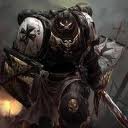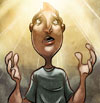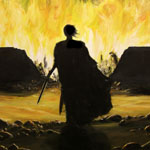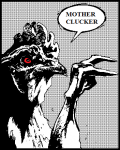Page 1 of 1
Consider Phlebas by Iain M. Banks Introducing the Culture
#1

Posted 03 March 2009 - 11:22 PM
Iain Banks had already published three mainstream novels by the time Consider Phlebas was published in 1987. When his publishers suggested using a pseudonym to make it easier to distinguish between his SF and mainstream work, Banks decided to adopt the impenetrable alias 'Iain M. Banks' for his SF and leave his mainstream work under the name 'Iain Banks', a tradition he maintains to this day.
Consider Phlebas introduces the Culture. A vast, utopian society of trillions of humanoids populating planets, Dyson Spheres, Niven-esque Rings and Orbitals and vast sentient starships, the Culture is the ultimate civilised society where the people have given over the running of their civilisation wholly to machines - the Minds - so they can chill out and have a good time. Of course, this leads other species to view them as weak, indolent and decadent. Suspicious of the steadily expanding sphere of Culture influence in the Galaxy, the fanatically religious Idirans decide to take action and declare war against the Culture. Soon, the Culture is retreating on every front as the aggressive Idirans sweep towards the Culture homeworlds, and the Galaxy anticipates a quick end to the war with a negotiated settlement.
Four years into the war, the Culture is still holding out, to the bemusement of the Galaxy at large. Whilst warships fight across mind-boggling distances, Idiran and Culture agents are also battling for influence on various neutral worlds. During one such clandestine operation, the Changer operative Horza (leasing his services to the Idirans) runs afoul of a Culture Special Circumstances agent and is arrested. Managing to escape under the cover of an Idiran planetary assault, he finds himself shanghaied into the crew of a mercenary ship and then dragged halfway around the Galaxy before he can undertake his next Idiran mission, namely the recovery of a Culture Mind that jettisoned from its ship and crashed on a planet sealed off from the rest of the Galaxy by an ultra-powerful 'ascended' species.
Consider Phlebas wasn't Banks' first SF novel: he had written several others previously (including the ones later published, after much revision, as Player of Games and Use of Weapons). This experience shows in a book which is highly polished and thoroughly readable. The storyline is gripping and, thanks to Banks' black humour, highly enjoyable with some decidedly Douglas Adams-esque moments of humour (the increasingly exasperated Culture drones are particularly amusing). Horza makes for a fascinating protagonist, a sympathetic guy (despite doing some very bad things) whose problems and arguments with the Culture are understandable. By introducing the Culture in this way - by making it almost the 'bad' guy from Horza's point of view - Banks allows for much greater analysis of the society and the way it works (not to mention some excellently subtle worldbuilding) rather than having a Culture hero telling us how great it is.
The result is a book that is fast-paced, overflowing with ideas (the Orbital Vavatch, its Megaships, the Culture ships and the Command System are all genuinely impressive SF concepts) and is genuinely funny in places, although still with a thoughtful, wry ending. An excellent introduction to Iain Banks' work. The prose isn't quite as polished as his later works, but is still of impressive quality.
Consider Phlebas (****Ĺ) is available now from Orbit in the UK and USA.
Consider Phlebas introduces the Culture. A vast, utopian society of trillions of humanoids populating planets, Dyson Spheres, Niven-esque Rings and Orbitals and vast sentient starships, the Culture is the ultimate civilised society where the people have given over the running of their civilisation wholly to machines - the Minds - so they can chill out and have a good time. Of course, this leads other species to view them as weak, indolent and decadent. Suspicious of the steadily expanding sphere of Culture influence in the Galaxy, the fanatically religious Idirans decide to take action and declare war against the Culture. Soon, the Culture is retreating on every front as the aggressive Idirans sweep towards the Culture homeworlds, and the Galaxy anticipates a quick end to the war with a negotiated settlement.
Four years into the war, the Culture is still holding out, to the bemusement of the Galaxy at large. Whilst warships fight across mind-boggling distances, Idiran and Culture agents are also battling for influence on various neutral worlds. During one such clandestine operation, the Changer operative Horza (leasing his services to the Idirans) runs afoul of a Culture Special Circumstances agent and is arrested. Managing to escape under the cover of an Idiran planetary assault, he finds himself shanghaied into the crew of a mercenary ship and then dragged halfway around the Galaxy before he can undertake his next Idiran mission, namely the recovery of a Culture Mind that jettisoned from its ship and crashed on a planet sealed off from the rest of the Galaxy by an ultra-powerful 'ascended' species.
Consider Phlebas wasn't Banks' first SF novel: he had written several others previously (including the ones later published, after much revision, as Player of Games and Use of Weapons). This experience shows in a book which is highly polished and thoroughly readable. The storyline is gripping and, thanks to Banks' black humour, highly enjoyable with some decidedly Douglas Adams-esque moments of humour (the increasingly exasperated Culture drones are particularly amusing). Horza makes for a fascinating protagonist, a sympathetic guy (despite doing some very bad things) whose problems and arguments with the Culture are understandable. By introducing the Culture in this way - by making it almost the 'bad' guy from Horza's point of view - Banks allows for much greater analysis of the society and the way it works (not to mention some excellently subtle worldbuilding) rather than having a Culture hero telling us how great it is.
The result is a book that is fast-paced, overflowing with ideas (the Orbital Vavatch, its Megaships, the Culture ships and the Command System are all genuinely impressive SF concepts) and is genuinely funny in places, although still with a thoughtful, wry ending. An excellent introduction to Iain Banks' work. The prose isn't quite as polished as his later works, but is still of impressive quality.
Consider Phlebas (****Ĺ) is available now from Orbit in the UK and USA.
Visit The Wertzone for reviews of SF&F books, DVDs and computer games!
"Try standing out in a winter storm all night and see how tough you are. Start with that. Then go into a bar and pick a fight and see how tough you are. And then go home and break crockery over your head. Start with those three and you'll be good to go."
- Bruce Campbell on how to be as cool as he is
- Bruce Campbell on how to be as cool as he is
#2

Posted 04 March 2009 - 03:00 PM
Wert, our resident reviewer.. I guess I should start doing this too, just to make you feel less lonely in here.
I've always held CP as one of my favourite M. Banks books. I like it more than the player of games, excession and look to windward. Horza is a great character and I like – as you pointed out – how the world building is done considering how Horza hates the Culture. What really did the book for me though was the ending. Banks has always been very good at endings and the end of CP really made me shiver.
I've always held CP as one of my favourite M. Banks books. I like it more than the player of games, excession and look to windward. Horza is a great character and I like – as you pointed out – how the world building is done considering how Horza hates the Culture. What really did the book for me though was the ending. Banks has always been very good at endings and the end of CP really made me shiver.
Take good care to keep relations civil
It's decent in the first of gentlemen
To speak friendly, Even to the devil
It's decent in the first of gentlemen
To speak friendly, Even to the devil
#3

Posted 04 March 2009 - 03:10 PM
An excellent book and an excellent review.
I agree with Morgy, the ending is just draining, it gives you a crushing sense of futility and emptiness but not so that it detracts from the book you just read.
I agree with Morgy, the ending is just draining, it gives you a crushing sense of futility and emptiness but not so that it detracts from the book you just read.
I AM A TWAT
#4

Posted 04 March 2009 - 04:02 PM
I agree with all. CP is one of my favorites along the The Player of Games, because it is very enjoyable and because the ending is very well done. There is a great story there and it's one that I have reread a few times.
#5

Posted 05 March 2009 - 06:40 PM
After reading this rewiew and after hearing lots of suggestions I decided to make some research and on wikipedia it said that the Player of Games was a better start for the Culture novels than Consider Phlebas. What do you say?
Adept of Team Quick Ben
I greet you as guests and so will not crush the life from you and devour your soul with peals of laughter. No, instead, I will make tea-Gothos
I greet you as guests and so will not crush the life from you and devour your soul with peals of laughter. No, instead, I will make tea-Gothos
#6

Posted 05 March 2009 - 07:02 PM
I don't think that I would agree with that. The Player of Games doesn't really deal with the Culture. It is set in the Universe but focuses on one guy and his goal, as set by the Culture. It doesn't introduce the ideology of the Culture or their goals as much as in Consider Phelebas.
#7

Posted 05 March 2009 - 07:06 PM
Vizzini, on Mar 5 2009, 01:02 PM, said:
I don't think that I would agree with that. The Player of Games doesn't really deal with the Culture. It is set in the Universe but focuses on one guy and his goal, as set by the Culture. It doesn't introduce the ideology of the Culture or their goals as much as in Consider Phelebas.
the novels from the culture side are culture novels.
Player of Games is about a culture man who goes to a neutral planet to play a different game... it dosen't have a lot to do with culture society, as noted by Vizzi.
Player of Games is an easier read than Consider Phlebas, in my opinion, but not a better place to start.
Monster Hunter World Iceborne: It's like hunting monsters, but on crack, but the monsters are also on crack.
#8

Posted 05 March 2009 - 07:38 PM
I always recommend that series should be read in the order they were published... but yeah, I think Player of Games is a perfectly legitimate place to start. I think it introduces the Culture much better than Consider Phlebas, though it does not do it in such an interesting way (i.e. from the view point of the other guys).
I started with Excession, and it's my favourite Culture novel, but I think I would have found it more accessible if I had read PoG first. I don't think CP would have made much difference.
I think Excession, Look to Windward, Player of Games and Inversions are the best Culture novels (probably in that order), but don't read them in that order
I started with Excession, and it's my favourite Culture novel, but I think I would have found it more accessible if I had read PoG first. I don't think CP would have made much difference.
I think Excession, Look to Windward, Player of Games and Inversions are the best Culture novels (probably in that order), but don't read them in that order
Don't fuck with the Culture.
#9

Posted 05 March 2009 - 07:41 PM
I should re-read this one.
I read it last summer after reading a whack of Alastair Reynolds stuff and I found myself utterly bored with "Phlebas." I actually started skipping pages near the end because I was so uninterested in the characters and story. Maybe it was me instead of the book. That would be good. I've been leery of buying more Banks stuff because of my dislike for this one.
I read it last summer after reading a whack of Alastair Reynolds stuff and I found myself utterly bored with "Phlebas." I actually started skipping pages near the end because I was so uninterested in the characters and story. Maybe it was me instead of the book. That would be good. I've been leery of buying more Banks stuff because of my dislike for this one.
#10

Posted 05 March 2009 - 07:56 PM
Man, you have to read all the Culture books. People say that Use of Weapons is the best, but really I think it's because of a gimmicky twist.
Still a good book, and the structure of it is brilliantly done, but by no means the best.
Still a good book, and the structure of it is brilliantly done, but by no means the best.
Don't fuck with the Culture.
#11

Posted 09 March 2009 - 02:46 AM
As i'm sure I've said before, I'm a Use of Weapons man myself. I think Zakalwe is the most complete character Banks has made - in his sf novels anyway - so the big twist is even more shattering when it comes, because the reader thinks they know this man so well and like him so much (he is, in the beginning, a fairly cool guy after all) Although, given the way the narrative jumps about and what you learn in those jumps, I feel it's not entirely an unexpected twist
Consider Phlebas came totally out of leftfield for me when it was published, as Banks' previous notoriety came from The Wasp Factory and he was considered something of an enfant terrible of the British Literary Fiction community (although parts of The Bridge featuring, as they do, something that looks and acts very much like a Culture Drone, should have given me a clue)
The book itself throws the traditional Space Opera tropes into play and then proceeds to upend them. The hero is actually working for the bad guys; whose society looks suspiciously like the religious empires of the post Dune era space operas. The Culture, his ultimate antagonists, are a utopian society whose tenets are very far from the US-writ-large ones that previous sf authors had proposed for high-tech utopias (the Culture is probably the only sf society in which I would want to live, if it were real); which makes the reader think about what would actually constitute a utopia. And finally there was the scale of the thing... Banks had actually thought about what societies with almost limitless energy resouces (and hence via e=mc^2 almost limitless material resouces) could actually do, simply as a matter of course.
Arguably this is the book in which Banks invented the Modern Space Opera, which means sf readers have a lot to thank him for.
Spoiler
Consider Phlebas came totally out of leftfield for me when it was published, as Banks' previous notoriety came from The Wasp Factory and he was considered something of an enfant terrible of the British Literary Fiction community (although parts of The Bridge featuring, as they do, something that looks and acts very much like a Culture Drone, should have given me a clue)
The book itself throws the traditional Space Opera tropes into play and then proceeds to upend them. The hero is actually working for the bad guys; whose society looks suspiciously like the religious empires of the post Dune era space operas. The Culture, his ultimate antagonists, are a utopian society whose tenets are very far from the US-writ-large ones that previous sf authors had proposed for high-tech utopias (the Culture is probably the only sf society in which I would want to live, if it were real); which makes the reader think about what would actually constitute a utopia. And finally there was the scale of the thing... Banks had actually thought about what societies with almost limitless energy resouces (and hence via e=mc^2 almost limitless material resouces) could actually do, simply as a matter of course.
Arguably this is the book in which Banks invented the Modern Space Opera, which means sf readers have a lot to thank him for.
This post has been edited by stone monkey: 09 March 2009 - 02:47 AM
If an opinion contrary to your own makes you angry, that is a sign that you are subconsciously aware of having no good reason for thinking as you do. If some one maintains that two and two are five, or that Iceland is on the equator, you feel pity rather than anger, unless you know so little of arithmetic or geography that his opinion shakes your own contrary conviction. Ö So whenever you find yourself getting angry about a difference of opinion, be on your guard; you will probably find, on examination, that your belief is going beyond what the evidence warrants. Bertrand Russell
#12

Posted 09 March 2009 - 06:11 AM
I definitely like Use of Weapons best, and by no means think the twist was gimmicky - that's dismissing the depth of its purpose, and the purpose of the entire deception.
An interesting thing to keep in mind is that the scale of the books was created at least partially to keep them from ever being turned into a movie - at the time, Banks underestimated just how good CGI could get. And it sure blows to hell the eternal geekish "Which would win - a Star Destroyer or the Enterprise?" type debates that plagued various newsgroups for years... after all, the question isn't if a GSV or ROU could defeat <insert any other spacecraft from any other series here>, but whether it would even notice that it had done so ...
An interesting thing to keep in mind is that the scale of the books was created at least partially to keep them from ever being turned into a movie - at the time, Banks underestimated just how good CGI could get. And it sure blows to hell the eternal geekish "Which would win - a Star Destroyer or the Enterprise?" type debates that plagued various newsgroups for years... after all, the question isn't if a GSV or ROU could defeat <insert any other spacecraft from any other series here>, but whether it would even notice that it had done so ...
I finally have an avatar ... and it's better than yours.
#13

Posted 09 March 2009 - 07:25 AM
Kurt Montandon, on Mar 9 2009, 06:11 AM, said:
I definitely like Use of Weapons best, and by no means think the twist was gimmicky - that's dismissing the depth of its purpose, and the purpose of the entire deception.
I don't want to go into spoilers here, so I'll go create a thread in the other fantasy forum...
Don't fuck with the Culture.
#14

Posted 09 March 2009 - 10:47 AM
Kurt Montandon, on Mar 9 2009, 06:11 AM, said:
An interesting thing to keep in mind is that the scale of the books was created at least partially to keep them from ever being turned into a movie - at the time, Banks underestimated just how good CGI could get. And it sure blows to hell the eternal geekish "Which would win - a Star Destroyer or the Enterprise?" type debates that plagued various newsgroups for years... after all, the question isn't if a GSV or ROU could defeat <insert any other spacecraft from any other series here>, but whether it would even notice that it had done so ...
It is handy how the answer to any 'Who'd win, in SPAAAAAAAACE' is "The Culture. Next question."
Hello, soldiers, look at your mage, now back to me, now back at your mage, now back to me. Sadly, he isnít me, but if he stopped being an unascended mortal and switched to Sole Spice, he could smell like heís me. Look down, back up, where are you? Youíre in a warren with the High Mage your cadre mage could smell like. Whatís in your hand, back at me. I have it, itís an acorn with two gates to that realm you love. Look again, the acorn is now otataral. Anything is possible when your mage smells like Sole Spice and not a Bole brother. Iím on a quorl.
#15

Posted 09 March 2009 - 05:12 PM
I love how hard the Culture are, while still being people you might actually want to meet. Iron fist in a velvet glove.
The best example of this I think is in Look to Windward:
The best example of this I think is in Look to Windward:
Spoiler
Don't fuck with the Culture.
#16

Posted 09 March 2009 - 05:21 PM
Long time since I read this one but this thread will prompt a re-read I think. I seem to remember finding the cannibal arc very disturbing.
#17

Posted 09 March 2009 - 07:11 PM
"Kids these days. Can't tell the difference between a gravitational field and a rotating frame of reference...."
That quote always makes me laugh.
That quote always makes me laugh.
If an opinion contrary to your own makes you angry, that is a sign that you are subconsciously aware of having no good reason for thinking as you do. If some one maintains that two and two are five, or that Iceland is on the equator, you feel pity rather than anger, unless you know so little of arithmetic or geography that his opinion shakes your own contrary conviction. Ö So whenever you find yourself getting angry about a difference of opinion, be on your guard; you will probably find, on examination, that your belief is going beyond what the evidence warrants. Bertrand Russell
Share this topic:
Page 1 of 1

 Help
Help



















